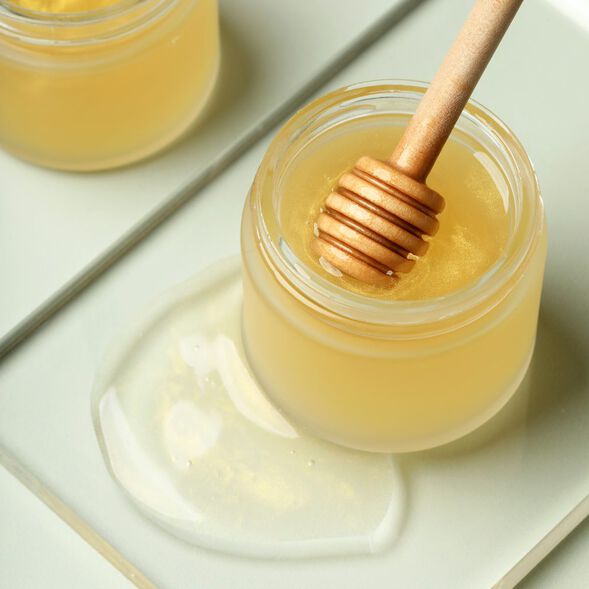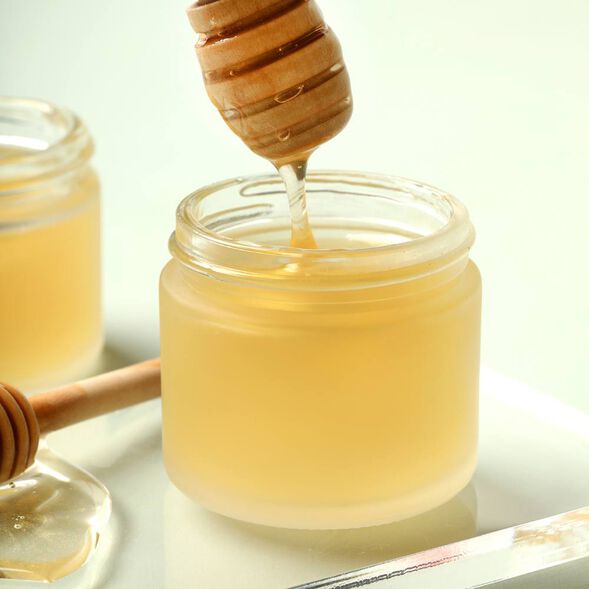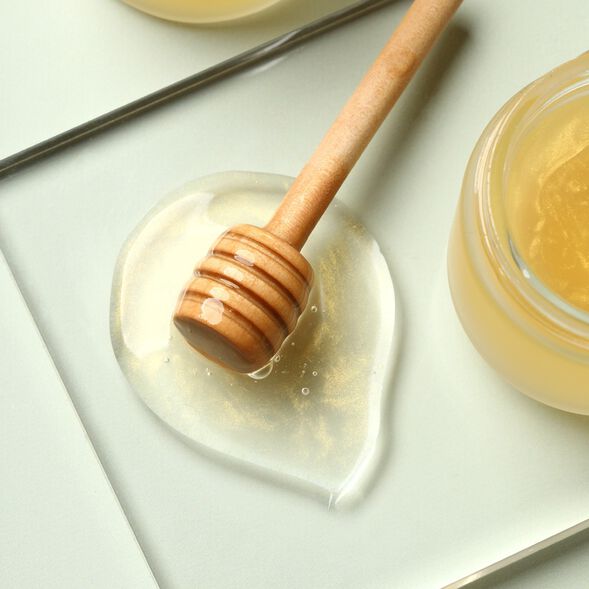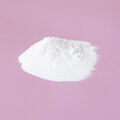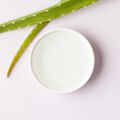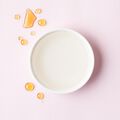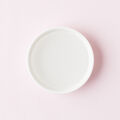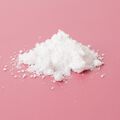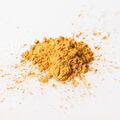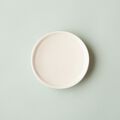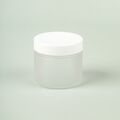
Honey Hyaluronic Jelly Face Mask Project
- Skill Level:
- Time: 30 minutes
- Yield: null
Project Description
This recipe is a spin on this Rose Hyaluronic Jelly Mask Project, formulated by TaraLee Skincare. We (and you!) loved it so much, we swapped a few ingredients for a honey theme. We included honeyquat in this formulation - it's a powerful humectant that's wonderful for skincare.
Hyaluronic acid has water-absorbing properties, which creates the unique gel-like texture. The mask needs to sit overnight to allow the skincare ingredients to absorb - this will also get rid of the clumps that occur when initially mixing. Learn more about working with hyaluronic acid in this article.
Our skin's natural pH is between 4.5-5.5, and the mask may be lower (TaraLee's was 3.89). The pH will depend on your distilled water. She explains how to raise the pH of your mask, if necessary. This process involves adding drops of lye water to the finished product. To do so, you will need a pH meter, lye-safe containers, and safety gear. Click here to read our Lye Safety Guide, and find our sodium hydroxide lye here.
Find & follow TaraLee Skincare
YouTube
Instagram
Patreon
You will need:
- Four 2 oz. Frosted Glass Jars
Phase A: - 6 g. Hyaluronic Acid (1.5%)
- 40 g. Glycerin (10%)
- 6 g. Optiphen Plus (1.5%)
- Small pinch of King's Gold Mica
Phase B: - 244 g. Distilled Water (61%)
- 80 g. Aloe Vera Liquid (20%)
- 16 g. Honeyquat (4%)
- 8 g. DL Panthenol (2%)
To Adjust pH (if necessary): - 90 g. Distilled Water
- 10 g. Sodium Hydroxide Lye
EQUIPMENT PREP: Disinfect your utensils by dipping them in a 5% bleach water solution and allowing to dry. This includes mixing containers and any spoons or spatulas that may come in contact with your mask. Your products must be as free of germs, bacteria, and microbes as possible.
Follow these steps:
1
In a small container, add 6 grams of hyaluronic acid, 40 grams of glycerin, and 6 grams of Optiphen ND. Add a pinch of King's Gold Mica - the amount is so small it will not register on a scale. Mix together until fully incorporated.
2
In a separate small container, add 244 grams of distilled water, 80 grams of aloe vera liquid, 16 grams of honeyquat, and 8 grams of DL panthenol. Mix until the DL panthenol is fully dissolved.
3
Pour phase B into phase A and mix until thickened. Clumping will occur - this is normal. Cover the container with plastic wrap or a lid and allow it to sit overnight. The next day, stir the mixture to fully incorporate.
4
Check the pH of the mask. It needs to be between 4.5-5.5. Pour a small amount of the face mask (5-10 grams) into a separate container and dip in a pH meter. If it's between 4.5-5.5, then you do not need to adjust the pH - proceed to step 6. If it is below 4.5, proceed to step 5.
5
Suit up for lye safety - this means gloves, goggles, long sleeves, and close-toed shoes. Click here to learn more about lye safety. In a small container, add 10 grams of sodium hydroxide lye. In a heat-resistant container, add 90 grams of distilled water. Carefully add the lye to the distilled water and stir until clear. Allow to cool to room temperature. Add five drops of the lye mixture to your finished product and mix. Let sit for about a minute, and check the pH again. If the pH still hasn't reached 4.5, add a couple more drops, mix, and allow to sit. Check the pH, and continue the process until you have a pH of 4.5-5.5.
6
Pour the product into jars. Store in a cool, dark, and dry place. To use, apply to clean skin. Allow to stay on the skin for 15-20 minutes, and gently wash away. Enjoy!
Tutorial credits
Photographer: Amanda Kerzman

Honey Hyaluronic Jelly Face Mask Project
- Skill Level:
- Time: 30 minutes
- Yield: null
Project Description
This recipe is a spin on this Rose Hyaluronic Jelly Mask Project, formulated by TaraLee Skincare. We (and you!) loved it so much, we swapped a few ingredients for a honey theme. We included honeyquat in this formulation - it's a powerful humectant that's wonderful for skincare.
Hyaluronic acid has water-absorbing properties, which creates the unique gel-like texture. The mask needs to sit overnight to allow the skincare ingredients to absorb - this will also get rid of the clumps that occur when initially mixing. Learn more about working with hyaluronic acid in this article.
Our skin's natural pH is between 4.5-5.5, and the mask may be lower (TaraLee's was 3.89). The pH will depend on your distilled water. She explains how to raise the pH of your mask, if necessary. This process involves adding drops of lye water to the finished product. To do so, you will need a pH meter, lye-safe containers, and safety gear. Click here to read our Lye Safety Guide, and find our sodium hydroxide lye here.
Find & follow TaraLee Skincare
YouTube
Instagram
Patreon
You will need:
- Four 2 oz. Frosted Glass Jars
Phase A: - 6 g. Hyaluronic Acid (1.5%)
- 40 g. Glycerin (10%)
- 6 g. Optiphen Plus (1.5%)
- Small pinch of King's Gold Mica
Phase B: - 244 g. Distilled Water (61%)
- 80 g. Aloe Vera Liquid (20%)
- 16 g. Honeyquat (4%)
- 8 g. DL Panthenol (2%)
To Adjust pH (if necessary): - 90 g. Distilled Water
- 10 g. Sodium Hydroxide Lye
EQUIPMENT PREP: Disinfect your utensils by dipping them in a 5% bleach water solution and allowing to dry. This includes mixing containers and any spoons or spatulas that may come in contact with your mask. Your products must be as free of germs, bacteria, and microbes as possible.
Follow these steps:
1
In a small container, add 6 grams of hyaluronic acid, 40 grams of glycerin, and 6 grams of Optiphen ND. Add a pinch of King's Gold Mica - the amount is so small it will not register on a scale. Mix together until fully incorporated.
2
In a separate small container, add 244 grams of distilled water, 80 grams of aloe vera liquid, 16 grams of honeyquat, and 8 grams of DL panthenol. Mix until the DL panthenol is fully dissolved.
3
Pour phase B into phase A and mix until thickened. Clumping will occur - this is normal. Cover the container with plastic wrap or a lid and allow it to sit overnight. The next day, stir the mixture to fully incorporate.
4
Check the pH of the mask. It needs to be between 4.5-5.5. Pour a small amount of the face mask (5-10 grams) into a separate container and dip in a pH meter. If it's between 4.5-5.5, then you do not need to adjust the pH - proceed to step 6. If it is below 4.5, proceed to step 5.
5
Suit up for lye safety - this means gloves, goggles, long sleeves, and close-toed shoes. Click here to learn more about lye safety. In a small container, add 10 grams of sodium hydroxide lye. In a heat-resistant container, add 90 grams of distilled water. Carefully add the lye to the distilled water and stir until clear. Allow to cool to room temperature. Add five drops of the lye mixture to your finished product and mix. Let sit for about a minute, and check the pH again. If the pH still hasn't reached 4.5, add a couple more drops, mix, and allow to sit. Check the pH, and continue the process until you have a pH of 4.5-5.5.
6
Pour the product into jars. Store in a cool, dark, and dry place. To use, apply to clean skin. Allow to stay on the skin for 15-20 minutes, and gently wash away. Enjoy!
Tutorial credits
Photographer: Amanda Kerzman
You will need:
- Four 2 oz. Frosted Glass Jars
Phase A: - 6 g. Hyaluronic Acid (1.5%)
- 40 g. Glycerin (10%)
- 6 g. Optiphen Plus (1.5%)
- Small pinch of King's Gold Mica
Phase B: - 244 g. Distilled Water (61%)
- 80 g. Aloe Vera Liquid (20%)
- 16 g. Honeyquat (4%)
- 8 g. DL Panthenol (2%)
To Adjust pH (if necessary): - 90 g. Distilled Water
- 10 g. Sodium Hydroxide Lye
EQUIPMENT PREP: Disinfect your utensils by dipping them in a 5% bleach water solution and allowing to dry. This includes mixing containers and any spoons or spatulas that may come in contact with your mask. Your products must be as free of germs, bacteria, and microbes as possible.
Follow these steps:
1
In a small container, add 6 grams of hyaluronic acid, 40 grams of glycerin, and 6 grams of Optiphen ND. Add a pinch of King's Gold Mica - the amount is so small it will not register on a scale. Mix together until fully incorporated.
2
In a separate small container, add 244 grams of distilled water, 80 grams of aloe vera liquid, 16 grams of honeyquat, and 8 grams of DL panthenol. Mix until the DL panthenol is fully dissolved.
3
Pour phase B into phase A and mix until thickened. Clumping will occur - this is normal. Cover the container with plastic wrap or a lid and allow it to sit overnight. The next day, stir the mixture to fully incorporate.
4
Check the pH of the mask. It needs to be between 4.5-5.5. Pour a small amount of the face mask (5-10 grams) into a separate container and dip in a pH meter. If it's between 4.5-5.5, then you do not need to adjust the pH - proceed to step 6. If it is below 4.5, proceed to step 5.
5
Suit up for lye safety - this means gloves, goggles, long sleeves, and close-toed shoes. Click here to learn more about lye safety. In a small container, add 10 grams of sodium hydroxide lye. In a heat-resistant container, add 90 grams of distilled water. Carefully add the lye to the distilled water and stir until clear. Allow to cool to room temperature. Add five drops of the lye mixture to your finished product and mix. Let sit for about a minute, and check the pH again. If the pH still hasn't reached 4.5, add a couple more drops, mix, and allow to sit. Check the pH, and continue the process until you have a pH of 4.5-5.5.
6
Pour the product into jars. Store in a cool, dark, and dry place. To use, apply to clean skin. Allow to stay on the skin for 15-20 minutes, and gently wash away. Enjoy!
Tutorial credits
Photographer: Amanda Kerzman


